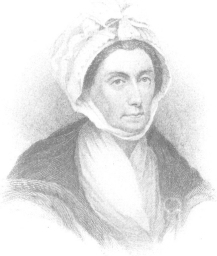James Dalrymple, 1st Viscount of Stair (May, 1619 - November 29, 1695), Scottish lawyer and statesman, was born at Drummurchie, Barr, South Ayrshire.
 Biography
BiographyStair's great legal work, The Institutions of the Law of Scotland deduced from its Originals, and collated with the Civil, Canon and Feudal Laws and with the Customs of Neighbouring Nations, affords evidence of the advantage he had enjoyed from his philosophical training, his foreign travels and his intercourse with Continental jurists as well as English lawyers. Unfortunately for its permanent fame and use, much of the law elucidated in it has now become antiquated through the decay of the feudal part of Scottish law and the large introduction of English law, especially in the departments of commercial law and equity. The Physiologia was favourably noticed by Boyle, and is interesting as showing the activity of mind of the exiled judge, who returned to the studies of his youth with fresh zest when physical science was approaching its new birth. But he was not able to emancipate himself from formulae which had cramped the education of his generation, and had not caught the light which Newton spread at this very time by the communication of his Principia to the Royal Society of London.
 Offspring
OffspringAn apology for Sir James Dalrymple of Stair, President of the Session, by himself ... Edinburgh, 1690 (which responds to the pamphlet by Robert Ferguson: The late proceedings and votes of the Parliament of Scotland)
The decisions of the Lords of Council & Session, in the most important cases debate before them, with the Acts of Sederunt. As also, an alphabetical compend of the decisions, with an index of the Acts of Sederunt, and the pursuers and defenders names. From June 1661. to July 1681. ... observed by Sir James Dalrymple of Stair. 2 vols. Edinburgh, 1683
The institutions of the law of Scotland, deduced from its originals, and collated with the civil, canon and feudal laws; and with the customs of neighbouring nations ... . Edinburgh, 1681 (which includes his:Modus litigandi, or form of process observed before the Lords of Council and Session in Scotland. Edinburgh, 1681)
The institutions of the law of Scotland, deduced from its originals, and collated with the civil, canon and feudal laws, and with the customs of neighbouring nations. 2nd ed. Edinburgh, 1693
The institutions of the law of Scotland, deduced from its originals, and collated with the civil, and feudal-laws, and with the customs of neighbouring nations. 3rd ed. Edinburgh, 1759
The institutions of the law of Scotland deduced from its originals and collated with the civil, canon and feudal laws and with the customs of neighbouring nations. New ed. 2 vols. Edinburgh, 1832.
The institutions of the law of Scotland deduced from its originals, and collated with the civil, canon and feudal laws, and with the customs of neighbouring nations … ; edited by David M. Walker. Edinburgh : University Presses of Edinburgh and Glasgow, 1981. ISBN 0-85224-397-9 (Text based on the 1693 edition)
The laws of Scotland : Stair memorial encyclopaedia. Edinburgh : Butterworths, 1999-
Physiologia nova experimentalis in qua generales notiones Aristotelis, Epicuri, & Cartesii supplentur errores deteguntur & emendantur …. Lugduni-Batavorum [Leiden], [1686] Notes
This article incorporates text from the Encyclopædia Britannica Eleventh Edition, a publication now in the public domain.
No comments:
Post a Comment